Theresa May warns rebels as Brexit talks set to resume
- Published
- comments
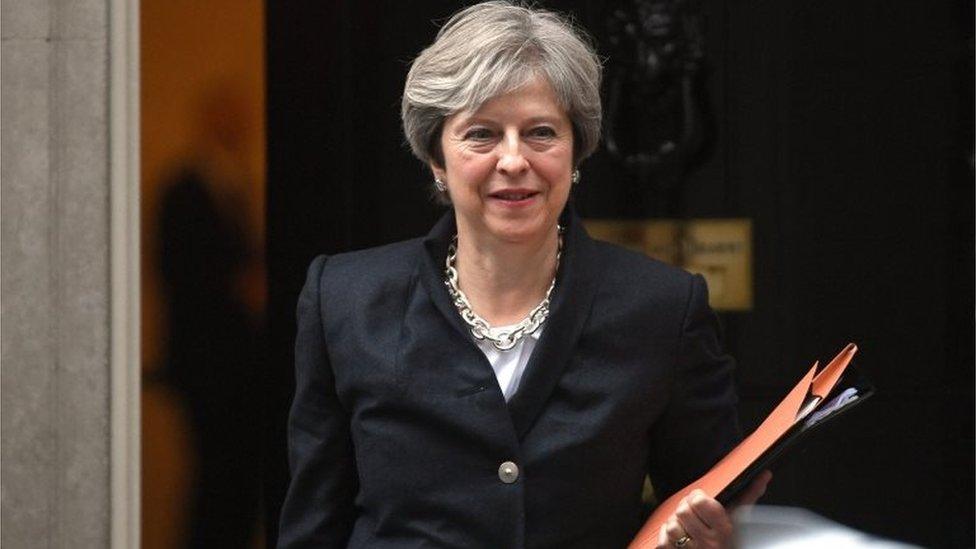
Theresa May has outlined plans to set the UK's departure date and time from the EU in law, warning she will not "tolerate" any attempt to block Brexit.
She said the EU Withdrawal Bill would be amended to formally commit to Brexit at 23:00 GMT on Friday 29 March 2019.
The bill will be scrutinised by MPs next week - but the PM warned against attempts to stop it or slow it down.
Mrs May was writing in the Daily Telegraph, external as a fresh round of Brexit negotiations are due to begin later.
The UK is due to leave the European Union after 2016's referendum in which 51.9% of voters backed Brexit.
The prime minister said the decision to put the specific time of Brexit "on the front page" of the Brexit bill showed the government was determined to see the process through.
"Let no-one doubt our determination or question our resolve, Brexit is happening," she wrote.
"It will be there in black and white on the front page of this historic piece of legislation: the United Kingdom will be leaving the EU on March 29, 2019 at 11pm GMT."
The draft legislation has already passed its second reading, and now faces several attempts to amend it at the next part of its parliamentary journey - the committee stage.
Mrs May said most people wanted politicians to "come together" to negotiate a good Brexit deal, adding that MPs "on all sides" should help scrutinise the bill.
She said the government would listen to MPs if they had ideas for improving the bill, but warned against attempts to halt the process.
"We will not tolerate attempts from any quarter to use the process of amendments to this Bill as a mechanism to try to block the democratic wishes of the British people by attempting to slow down or stop our departure from the European Union."
MPs have previously been told there have been 300 amendments and 54 new clauses proposed.
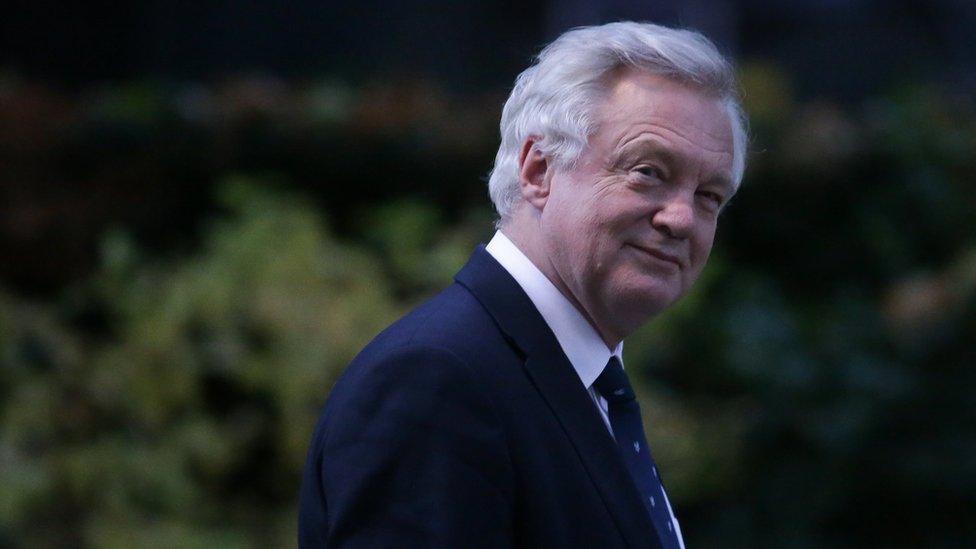
David Davis is due to take part in a fresh round of Brexit negotiations
The PM said the "historic" bill was "fundamental to delivering a smooth and orderly Brexit" and would give "the greatest possible clarity and certainty for all businesses and families across the country".
Labour MP and remain campaigner, Chuka Umunna, said many experts believed the March 2019 leaving date did not give much time for negotiations.
He told BBC Radio 5 live: "Lord Bridges said he could not see the government being able to negotiate the transition arrangement, like the bridge to us leaving, and the divorce bill, by 2019. So we may actually need more time."
Lord Kerr, the former diplomat who helped draft Article 50 of the Lisbon Treaty - the mechanism the UK has used to exit the EU - said putting the Brexit date on the bill did not mean the withdrawal process was irreversible.
The cross-bench peer told BBC Radio 4's Today programme that decisions such as these were being made in Westminster, and "had nothing to do with the treaty, and they have nothing to do with the views of our partners in Brussels".
But the Conservative MP and leave campaigner, Peter Bone, welcomed the decision to enshrine the leaving date in law, saying it was a "really big, important step".
Irish border questions
It comes as a leaked account of a meeting of EU diplomats this week suggested that Northern Ireland may have to abide by the EU's rules on the customs union and single market after Brexit - in order to avoid the introduction of border checks.
Both Britain and the EU say they are committed to ensuring that Brexit does not undermine the 1998 Good Friday peace agreement or lead to the emergence of hard-border with the Republic of Ireland.
However, BBC correspondent Adam Fleming said the commission's suggestion appeared to be at odds with comments made by the Northern Ireland Secretary, James Brokenshire, this week.
Mr Brokenshire said it was "difficult to imagine" Northern Ireland remaining in either the customs union or the single market after Brexit.
- Published10 November 2017
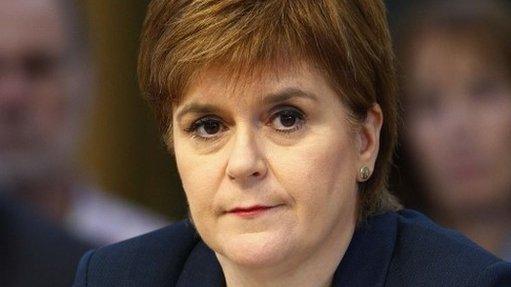
- Published10 November 2017
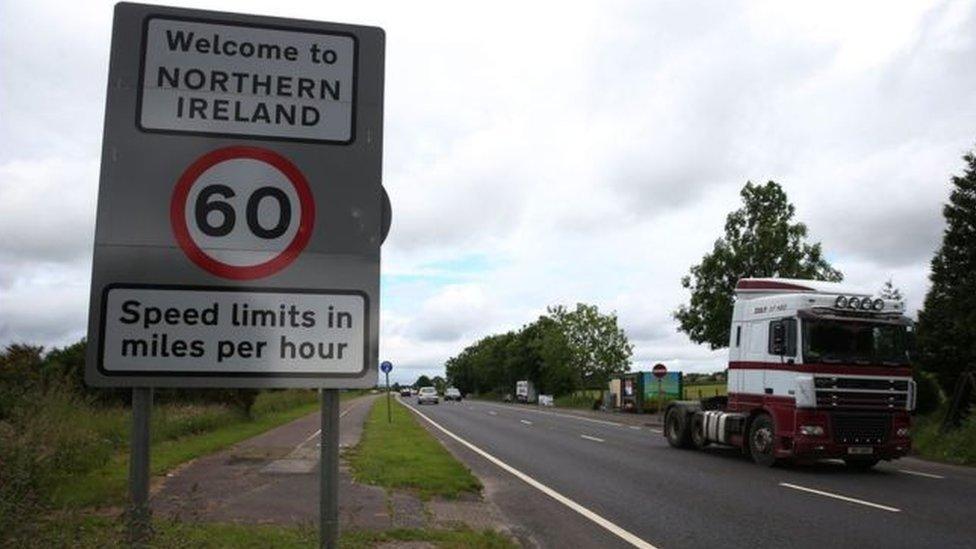
- Published9 November 2017
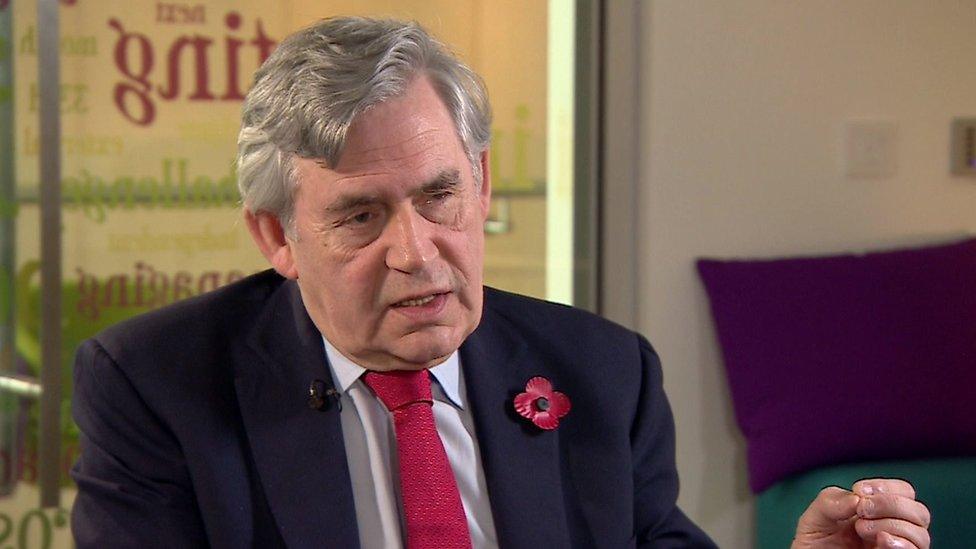
- Published9 November 2017
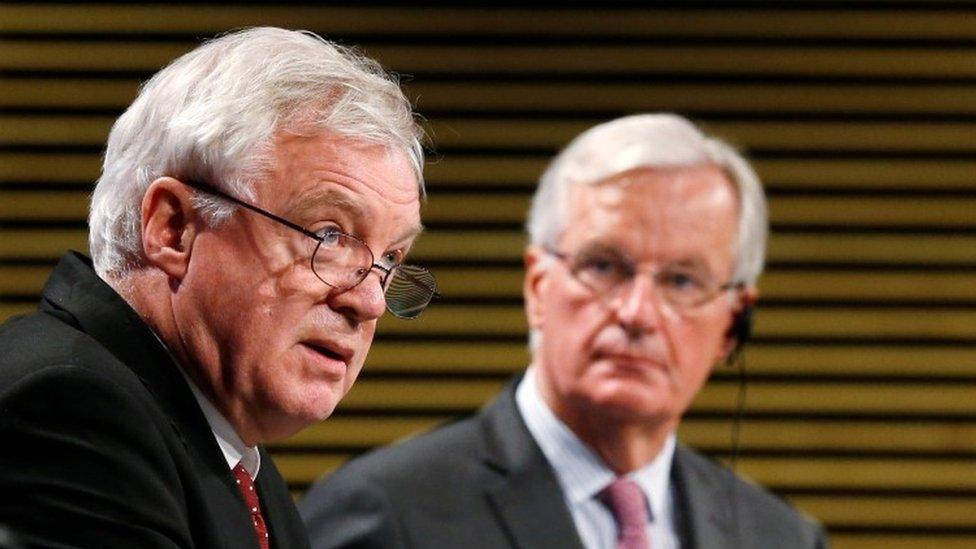
- Published9 November 2017